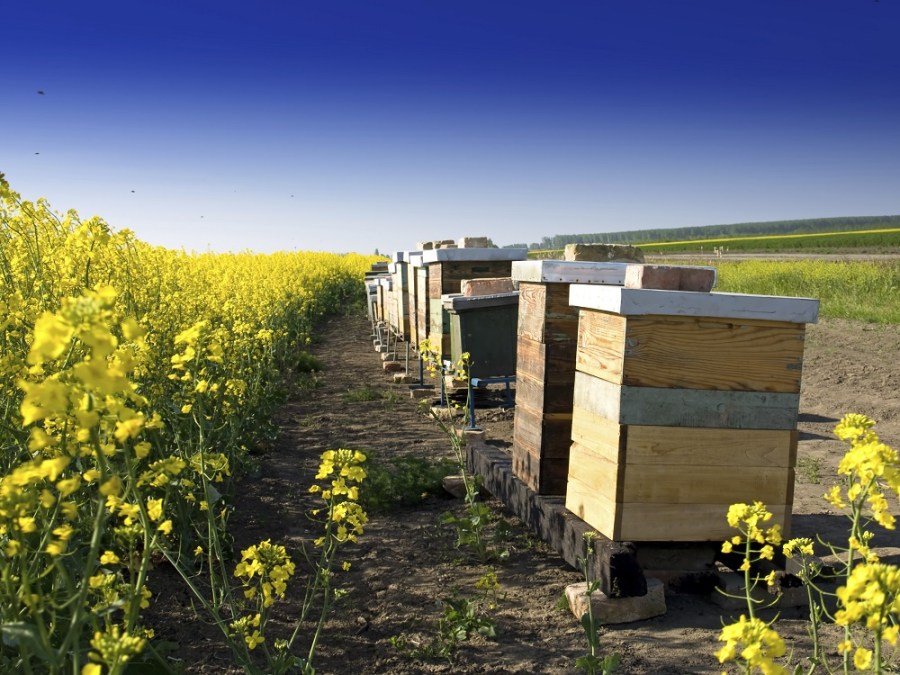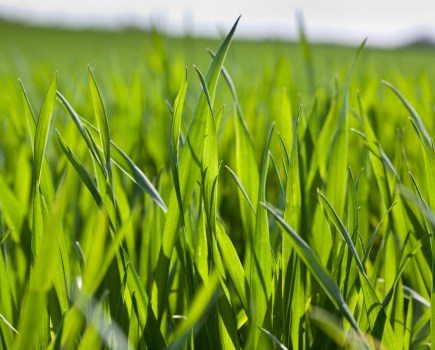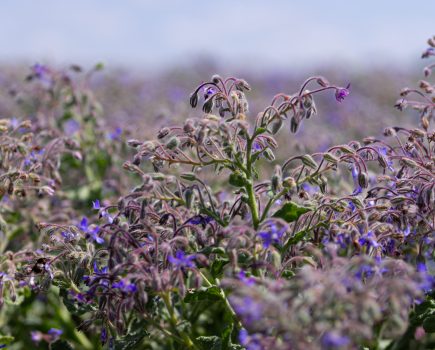Avoiding spraying pesticides when bees are being busy is something growers try their best to achieve. A new web-based system of communication between growers and beekeepers will now make this much easier. CPM finds out more about it.
Farmers, in just a few clicks, are able to inform local beekeepers when they intend to spray an insecticide in particular fields.
By Lucy de la Pasture
There’s no getting away from it, bees are a vital part of agriculture. Be it your humble bumbler or a hard-working honey bee, they do a crucial job when it comes to pollination.
In the UK, around 70 of the crops grown are dependent on, or benefit from, visits from bees – a value which is estimated at over £200 million/yr. Yet despite this, it’s
not always been straightforward for beekeepers and growers to communicate effectively.
Knowing exactly when the bees have stopped being busy and downed tools for the day can be a best guess for spray operators. Likewise, beekeepers can’t anticipate the movements of the sprayer and would rather have their bees on lockdown in their hives than risking exposure to a potentially less than friendly pesticide.
With hives generally located in close proximity to fields, communication between growers and beekeepers is paramount but until now, has relied pretty much on the beat of jungle drums. Now that’s all changing.
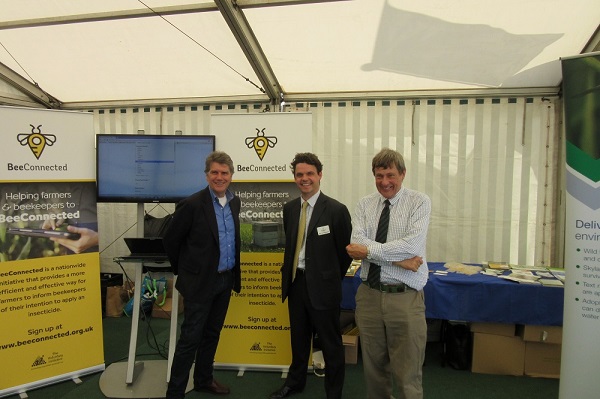
Left to right Tim Lovett, Nick Von Westenholz, Richard Butler
Tim Lovett, public affairs director at the British Beekeepers Association (BBKA) explains that previously the flow of information has been maintained by spray liaison officers (SLOs), who act as go-betweens, informing beekeepers when the farmer is going to spray. But this process hasn’t always been the most efficient or effective, he points out.
“The role of the SLO was never easy. It depended a lot on networking and local knowledge. And with the internet providing a way to communicate more rapidly, we saw an opportunity to bring spray alerting into the 21st century.”
New website
The result is a new website which aims to do exactly that by digitising the process. BeeConnected (www.beeconnected.org.uk) launched on 12 Sept, in plenty of time for autumn insecticide applications. That means farmers can inform beekeepers directly of their intention to spray an insecticide.
“When we initially had the idea for BeeConnected, there’d been a decline in sprays at the time, so there wasn’t much enthusiasm for it,” recalls Tim Lovett.
“But when we proposed it again in 2014, the spraying situation had changed quite significantly and the idea soon gained traction.”
The system is being promoted by the Voluntary Initiative (VI), who have worked closely with the Crop Protection Association (CPA), the BBKA and the National Farmers Union (NFU). The development of the site has been funded by the CPA.
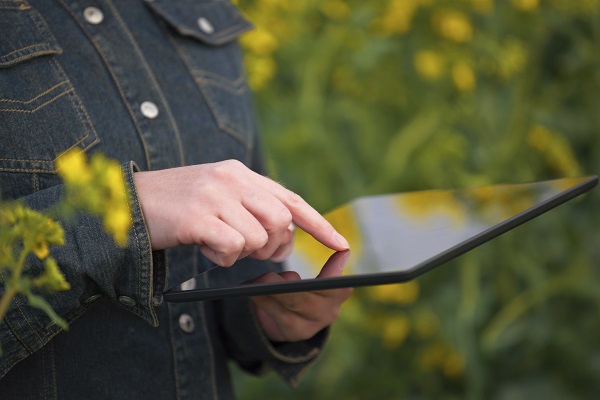
With a few clicks, farmers can see where hives are and beekeepers know when they’re spraying.
The chairman of the VI, Richard Butler, says BeeConnected has been designed to work quickly and efficiently for farmers and beekeepers alike.
“BeeConnected operates on a very simple, yet efficient, two-way process whereby farmers identify their fields and, in just a few clicks, are able to inform local beekeepers when they intend to spray an insecticide in particular fields.
“Beekeepers plot the location of their hives, and will then receive a notification ahead of when a farmer within their locality is planning to undertake a spray event.”
Pilot scheme
A pilot scheme for BeeConnected was launched across Herts towards the end of April, and it proved very successful. Well known farmer-innovator, Andrew Watts, was one of the participants in the pilot.
He’s always embraced stewardship, and sees BeeConnected as another way of continuing it over his 2250ha of combinable crops and grassland in north east Herts.
“We’ve been involved in countryside stewardship for a long time and have established a selection of wildflowers, such as red clover, to provide a source of nectar as well as wild-bird feeding strips and skylark plots.
“The countryside is a shared place and beekeepers need farmers just as much as farmers need beekeepers. It’s a two-way process, and anything that improves the communication there, as BeeConnected does, is a good thing,” he adds.
Andrew Watts first became aware of the pilot scheme for the new website after speaking with the VI at an agricultural show. “They were encouraging people to sign up – it was a bit of a ‘one step ahead’ thing, we wanted to see how BeeConnected compared.”
He says they’ve always had a good relationship with both his SLO and the local beekeepers, but emphasises that these relationships have been built on strong communication and mutual understanding.
“It doesn’t happen overnight; you have to work at it. And we do what we can to help. Bees are early risers, but they’re early to bed too. So when we spray our beans for bruchid beetle, we tend to spray late in the evening. We’ve always tried to use the safest options when it comes to insecticides anyway, but the insecticides that were more harmful to bees have mostly been withdrawn.”
Beekeeping experience
Another trial participant was Matt Smith, a beekeeper based in Bishops Stortford. He began beekeeping after taking part in one of the BBKA’s beginner courses and having started out with one second-hand hive, he’s since expanded to three hives which he tends to in his garden. He agrees with Tim Lovett that the website is an improvement on the existing SLO system of communication.
“The current SLO system isn’t always effective. The BeeConnected website is an excellent tool that can improve both bee health and relations between beekeepers and farmers,” he reckons.
Like Andrew Watts, Matt Smith also believes that this improved communication will be helpful for both groups, especially as beekeepers already have other issues besides insecticide spraying to be concerned about.
“One big factor that concerns beekeepers besides farming is the issue of pests and diseases,” he explains. “Bee colonies can be badly damaged by pests like parasitic mites, which feed on the bees and transmit diseases.
“Another factor is food availability. A colony of 50,000 bees needs a lot of food, so if there’s a prolonged period of wet weather when they can’t fly, or a time where there is a limited number of suitable plants in flower, it can have an adverse effect on colony health.”
Anything that allows beekeepers to focus more on these problems and worry less about sprays is therefore a positive thing, so when another BBKA member brought BeeConnected to his attention, he was keen to be involved.
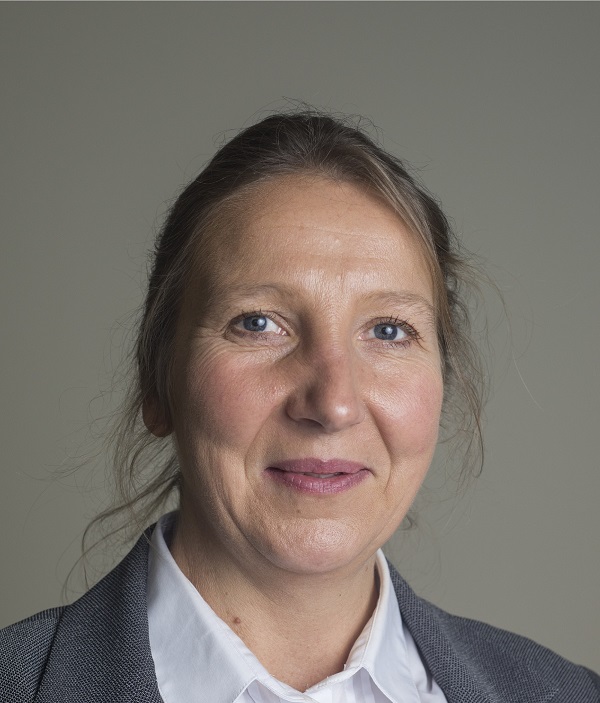
Emma Hamer says the website is a step forward for better stewardship
“Once I read about the pilot, I was determined to support it,” he says. “It was very easy to set up, and the alerts came through in time for me to take action to protect my bees.
“Honey bees are hugely beneficial to both their keepers, farmers and the larger population as a whole, and open communication between farmers and beekeepers can only be a good thing.
“I can only see BeeConnected as being a benefit to all involved, and I can’t think of any reason for beekeepers not to use this service,” he adds.
Best practice
Emma Hamer, senior plant health adviser at the NFU, agrees that the farming stewardship and best practice that BeeConnected facilitate are of particular importance.
“Farmers want to promote the responsible use of plant protection products to ensure they are protecting human health and the environment. As a result of this, farmers will be able to make use of these products for years to come. By embracing stewardship, the continued authorisation of these products is more likely to continue,” she believes.
“Agricultural pollination is extremely valuable to farmers, and that means bees are considered by farmers when using plant protection products. For example, the voluntary planting of pollen and nectar seed mix by farmers through the Campaign for the Farmed Environment has increased by 134% in the last two years,” she explains, adding that BeeConnected makes the dialogue between farmers and beekeepers much easier.
With the launch of the website, Nick von Westenholz, CEO of the CPA, comments, “There’s been a great deal of debate recently about the impact of farming on bees and pollinators, but what’s not in doubt is the commitment of UK farmers to responsible and judicious use of pesticides.
“BeeConnected is a fantastic tool that supports farmers to deliver best practice in pesticide use and I’m delighted that farmers across the UK are now able to use this free system. The more farmers and beekeepers that use it, the more useful it will be.”
Richard Butler of the VI agrees, adding, “This is a great opportunity for all farmers and beekeepers nationwide to improve their communications for their mutual
benefit. We encourage all farmers and beekeepers to make full use of the site and register by visiting www.beeconnected.org.uk”

